

Shopping Cart
No products in the basket.
THE YACHTIE ACADEMY

Incredible courses and communities, made by yachties, for yachties.
There was a problem reporting this post.
Block Member?
Please confirm you want to block this member.
You will no longer be able to:
- See blocked member's posts
- Mention this member in posts
- Invite this member to groups
- Message this member
- Add this member as a connection
Please note: This action will also remove this member from your connections and send a report to the site admin. Please allow a few minutes for this process to complete.
Home » SA Yachties: the facts on the seafarers tax exemption in South Africa and how it applies to you
- +27283122764
- [email protected]
- Login
SA Yachties: the facts on the seafarers tax exemption in South Africa and how it applies to you
March 27, 2023


SOUTH AFRICAN SEAFARERS AND YACHTIES
KNOW YOUR TAX OBLIGATIONS
As most know by now, SARS is grappling to increase revenue for their coffers, looking to South Africans who earn foreign income to subsidise the deficit. With all the uncertainty around the change in the foreign employment income exemption, which is coming into effect as of 1 March 2020, more and more people are wanting to get their tax affairs in order so to ensure that they are compliant with SARS.
One of the biggest issues which has surfaced is that many seafarers and superyacht crew (colloquially known as yachties) are not even registered for tax in South Africa, yet they have remaining assets in South Africa to include shares, trusts, properties and policies as well as resident bank account/s.
Donn辿 Trump of Seafarers Global has stated that it is imperative that as long as you are a South African tax resident or have income or assets in South Africa, you have to be registered for tax. As a tax resident, your worldwide income must be declared to SARS and seafarers have their very own exemptions in place to ensure they acquire the relevant tax relief.
Complexities For Seafarers
In determining your tax liability working at sea, be it on fishing vessels, exploration ships, luxury liners, yachts, tankers or container ships, a few factors need to be taken into consideration.
The position of seafarers is more complex than the standard foreign employee in that South African tax law provides for three different categories of exemption, which can be applied for on foreign income, says Jonty Leon, Legal Manager of Financial Emigration. There are various categories that a seafarer may fall into depending on their own unique situation, and most are unaware of these differences, this often creates uncertainty and a tendency for people to get the wrong advice.
The exemptions are categorised as follows:
- Salaries paid to an officer or a crew member of a ship Section 10(1)(o)(i)(aa) and (bb); or
- Foreign Employment Income earned outside of South Africa Section 10(1)(o)(ii).
The complexity is highlighted by the fact that seafarers work alongside colleagues with different tax circumstances, i.e. one could be exempt from tax in SA, whilst the other taxable. Something as simple as the mere position held by the seafarer, or the title on the vessel can affect this. Thus, seafarers need to understand the law and how it applies to their individual circumstances to be able to protect their foreign earned income.
Uncertainty also creates anxiety in people, however once you understand your personal situation and seek professional assistance, you are in a position to make use of the options that you have available to you.
Where Do Yachties Fit In?
Yachties should specifically be looking at Section 10(1)(o)(i)(aa) in order to determine whether they can take advantage of this exemption. They will need to ensure that the yacht upon which they are employed is a charter yacht used for the purposes of transporting passengers or goods. Should they not meet the requirements to make use of Section 10(1)(o)(i)(aa), they may then consider making use of Section 10(1)(o)(ii) for tax relief.
In terms of Section 10(1)(o)(ii), remuneration received by an employee for services rendered outside of South Africa for or on behalf of the employer will be tax exempt. As of 1 March 2020, this exemption will be limited to the first R1 million. In order to qualify for this exemption, the following requirements must be met:
- There must be an employer-employee relationship;
- There must be remuneration received in respect of services rendered;
- The taxpayer must be outside of SA for a period / periods exceeding 183 day in total during any 12 month period; and
- The taxpayer must be outside of SA for a continuous period of 60 full days during that same period of 12 months.
Dispelling The Myth: No Penalties For Registering
There seems to be a dangerous myth, especially amongst seafarers and yachties, that if one registers for tax, they may automatically be subject to fines or penalties. This myth is one of the major contributors as to why non-compliance is rife in the seafarer market. It is imperative that this myth is dispelled as it is likely be more harmful in the long run.
Donn辿 Trump emphasises that when registering for tax, one will be seen as a new registrant and will have a date of liability from date of registration. From this date going forward, the taxpayer will need to file tax returns, depending on their tax residency status, either on worldwide income or merely South African sourced income.
Secure Your Home Port
The longer one is non-compliant, the higher the chances this will impact the taxpayer negatively. Thus, if one meets the requirements to be registered for tax in SA, this should be done without fail or delay. Once this is done, the profile must be kept compliant, with income being declared annually and the correct tax relief methods / exemptions being used. As long as you are an individual who is a South African tax resident earning income, SARS can still find you and you will still be liable to pay taxes in South Africa.
Share to your social feed
- Share on Facebook
- Share on Twitter
- Share on LinkedIn
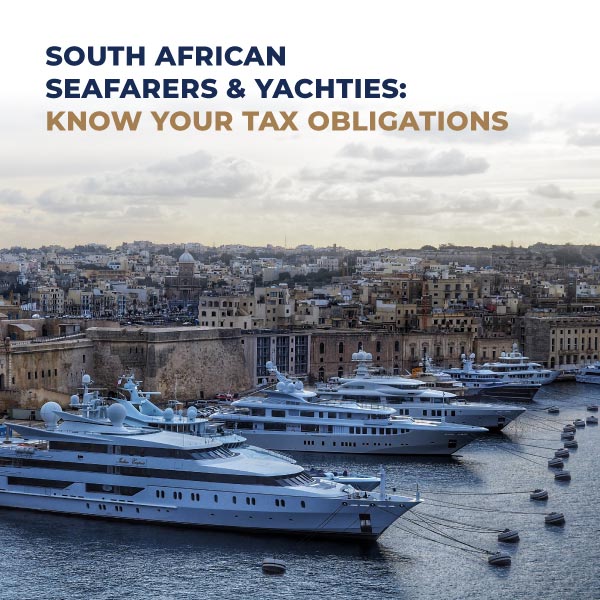
LATEST NEWS
This Website Uses Cookies
Privacy overview.
| Cookie | Duration | Description |
|---|---|---|
| cookielawinfo-checkbox-analytics | 11 months | This cookie is set by GDPR Cookie Consent plugin. The cookie is used to store the user consent for the cookies in the category "Analytics". |
| cookielawinfo-checkbox-functional | 11 months | The cookie is set by GDPR cookie consent to record the user consent for the cookies in the category "Functional". |
| cookielawinfo-checkbox-necessary | 11 months | This cookie is set by GDPR Cookie Consent plugin. The cookies is used to store the user consent for the cookies in the category "Necessary". |
| cookielawinfo-checkbox-others | 11 months | This cookie is set by GDPR Cookie Consent plugin. The cookie is used to store the user consent for the cookies in the category "Other. |
| cookielawinfo-checkbox-performance | 11 months | This cookie is set by GDPR Cookie Consent plugin. The cookie is used to store the user consent for the cookies in the category "Performance". |
| viewed_cookie_policy | 11 months | The cookie is set by the GDPR Cookie Consent plugin and is used to store whether or not user has consented to the use of cookies. It does not store any personal data. |
Looking for Crew
Thank you for choosing Global Yachties for your recruitment needs. We have three offices in South Africa under the name of ‘South African Yachties’ and our latest office – specializing in recruitment has just opened in Antibes, France under the name of ‘Global Yachties’.
We have a fantastic data base of crew (multi-national), they will all be reference checked and screened before being sent to you. You will receive the best of the best crew from us – and should it not work out with any of them we will offer a 2 month guarantee to assist you in finding a replacement crew member (at the same spec) free of charge.
Please contact us directly for a quote on the fees we charge.
If you could fill in the information form below we will have all the necessary details to find you your next ‘super star’ crew member!
* Contact person for recruitment:
* Contact persons Email Address:
* Contact persons Tel: [intl_tel* intl_tel-402]
* Boat Name:
* Current Location
* Motor / Sail
* Charter / Private
* Number of interior crew:
* Exterior crew:
* Engineers:
* Cruising Area:
* Dual Seasons:
* Primary Position for your new crew member:
* Salary: (please specify the currency)
* Start Date:
* Contract Duration:
* Tickets Required:
* Leave Days Per Year:
* Rotation Schedule? Yes No
If yes, what is the rotation schedule (eg 2 months on 2 months off)
* Experience Required in Years:
* Nationality Preference: (press cntl for multiple select) No Preference Afghan Albanian Algerian American Andorran Angolan Antiguans Argentinean Armenian Australian Austrian Azerbaijani Bahamian Bahraini Bangladeshi Barbadian Barbudans Batswana Belarusian Belgian Belizean Beninese Bhutanese Bolivian Bosnian Brazilian British Bruneian Bulgarian Burkinabe Burmese Burundian Cambodian Cameroonian Canadian Cape Verdean Central African Chadian Chilean Chinese Colombian Comoran Congolese Costa Rican Croatian Cuban Cypriot Czech Danish Djibouti Dominican Dutch East Timorese Ecuadorean Egyptian Emirian Equatorial Guinean Eritrean Estonian Ethiopian Fijian Filipino Finnish French Gabonese Gambian Georgian German Ghanaian Greek Grenadian Guatemalan Guinea-Bissauan Guinean Guyanese Haitian Herzegovinian Honduran Hungarian I-Kiribati Icelander Indian Indonesian Iranian Iraqi Irish Israeli Italian Ivorian Jamaican Japanese Jordanian Kazakhstani Kenyan Kittian and Nevisian Kuwaiti Kyrgyz Laotian Latvian Lebanese Liberian Libyan Liechtensteiner Lithuanian Luxembourger Macedonian Malagasy Malawian Malaysian Maldivian Malian Maltese Marshallese Mauritanian Mauritian Mexican Micronesian Moldovan Monacan Mongolian Moroccan Mosotho Motswana Mozambican Namibian Nauruan Nepalese New Zealander Ni-Vanuatu Nicaraguan Nigerian Nigerien North Korean Northern Irish Norwegian Omani Pakistani Palauan Panamanian Papua New Guinean Paraguayan Peruvian Polish Portuguese Qatari Romanian Russian Rwandan Saint Lucian Salvadoran Samoan San Marinese Sao Tomean Saudi Scottish Senegalese Serbian Seychellois Sierra Leonean Singaporean Slovakian Slovenian Solomon Islander Somali South African South Korean Spanish Sri Lankan Sudanese Surinamer Swazi Swedish Swiss Syrian Taiwanese Tajik Tanzanian Thai Togolese Tongan Trinidadian or Tobagonian Tunisian Turkish Tuvaluan Ugandan Ukrainian Uruguayan Uzbekistani Venezuelan Vietnamese Welsh Yemenite Zambian Zimbabwean
Additional Requirements/Notes:

Our Services
- Go 2 Sea Packages
- Complete Offshore Training
- Other Services
Our Go2Sea Packages
- Mediterranean
Free Visa Advice
--Select-- Get A Visa Complete Offshore Training Go 2 Sea Packages Other Services
Send Message

We offer visa assistance to anyone needing any type of visa
Our team consists of people from many nationalities however many of us have traveled on the "green mamba" and understand your frustrations and challenges when it comes to visas. Worry no more! Over the years we gained all the knowledge and experience needed to help you obtain your visa for almost any country in the world!

We Do Almost Any Type Of Visa
- Cruise Ship
Do you only need a visa assistance? No Problem!
We offer visa assistance to anyone needing any type of visa. Please make sure that you fill in all the documents correctly, and we will secure an appointment for you as soon as possible! We are the Visa Agency South Africa and the world can rely on.
Step 1: Fill In The Required Form
Complete the required form to apply for your visa
Step 2: Submit Your Original Documents
Submit the original documents to get the visa in time
Step 3: Receive Your Visa
We will be able to issue your Visa as quickly as possible
Frequently asked Questions
How long does it take for a student visa to process.
If you chose one of the 11 service centers, you must pick up your passport within 14 days; if you chose one of the 22 Blue Dart Courier service sites, you must pick up your passport within 7 days; otherwise i,t will be returned to the Embassy or Consulate
What is the fee structure for visa submission?
It varies depending on the country. It is difficult to say.
What are the important things to know as a Student Visa applicant?
You must need to know details about versity and how much it costs. Is it possible to work when you are a university student and little more things.

We are a proudly South African company with partners all over the globe that proudly equip yachties to go and represent us on yachts all over the world!
Leave Your Details
Impartial training and careers advice
Call us: +441983 280 641
+441983 280 641
- How to become a Yachtie
So you’re thinking about becoming a Yachtie?
You may have a friend or relative who already works in the industry, or you have watched TV programmes like Below Deck , you know working on a yacht is the right for you, but where do you start?
With the potential to earn great money, travel, and work with loads of like-minded people, it’s not surprising this job ticks a lot of boxes for many people.
Becoming a Yachtie and getting paid to work on luxury yachts may seem like a job and industry that only the elite can have access to, or it just seems too confusing to start.
However, with an understanding of the requirements, certification, and having some expectations of what job role you should be looking for, starting work as a Yachtie will not seem so daunting.
What is a Yachtie?
Before we go any further, let’s make sure we are all singing off the same hymn sheet.
A Yachtie is a broad term used to describe anyone who works on a yacht. More specifically, it has become the term for people working as yacht crew on superyachts.
A superyacht is a very large boat that is extremely luxurious and often owned by multi millionaires and billionaires.
These Yachties who work on superyachts hold a number of different positions. Most Yachties will start their superyacht career working as a Deckhand or Stewardess. With more experience and responsibilities, your role will change as you progress up the career ladder.
It’s worth noting there are other types of yachting and Yachties. The other kind of ‘Yachtie’ could describe those who hold their Yachtmaster qualification and have jobs like skipper charter boats.
Job roles for new Yachties
Yachties new to the industry (also known as ‘Green’ Yachties) will traditionally apply for entry levels roles, which are Yacht Deckhands or Yacht Stewardesses.
These are both very different jobs, so you need to be sure which one you want to do and start training for that career path.
Yacht Stewardess (Stew)
A Stewardess, or Steward , looks after the interior of the yacht. This means anything that happens inside the boat, you will be responsible for it.
Think of any job in the hospitality industry and then combine it into one role on a yacht, that is what you will be doing.
From making beds, doing the laundry, cleaning, serving food, and hosting dinner, you will do it all to a 5-star standard. Anything less than perfect, and your guests won’t be satisfied.
It’s the small things that make the difference between high standards and exceptional standards. You must have a great eye for detail and be able to make sure no stone is left unturned. Everything on board the ship must be 100% perfect at all times.
You will be reporting to Chief Stew, who will be your manager and give you your task list. After a good few seasons as a green Stewardess, you will have enough experience and confidence to apply for Chief Stewardess roles.
Yacht Deckhand
In contrast to the Stewardess role, Deckhands look after the exterior of the boat.
Predominantly a male role, Deckhands will do everything from general maintenance to cleaning the teak deck, looking after the toys (Jet Skis, etc.), and even driving the tenders.
Deckhands should know how a yacht operates, the basic terminology used onboard, how to tie knots, and loads and loads of enthusiasm.
Deckhands may also dip in and out of helping the Stewardesses, and it isn’t uncommon for Deckhands to give a hand during busy evening meal preparation and service.
5 steps to Becoming a Yachtie
With an understanding of the job roles available, you can now decide which one best suits you. With the right attitude, qualifications, and knowing where to look for work, becoming a Yachtie is achievable for anyone who wants it.
- Have the right attitude
- Pass an ENG1 medical
- Complete STCW Basic Safety Training
- Gain experience
- Go to a superyacht marina
1. Have the right attitude
Along with gaining the correct qualifications to prove your competence, to become a Yachtie, you must have certain characteristics to thrive in this industry.
Yachties have to be well presented, articulate, know how to take orders, and be able to work hard, all with a smile and enthusiasm. You have to be able to work incredibly long hours, sometimes under stressful conditions, without losing your patience.
Having a job on a superyacht may sound glamorous, but if it’s your 10th day working in a row and you’ve got your head stuck down a toilet trying to clean it, you may want to think again. To become a Yachtie, you have to be happy with spending a lot of time away from home without seeing your friends and family. This may all seem obvious, but this situation does not suit everyone, and without careful consideration of the negatives, you will leave this industry quicker than when you arrived.
2. Pass ENG1 Medical
The first actionable step you need to take to become a Yachtie is gaining an ENG1 medical certificate. The ENG1 medical is an examination by an approved MCA (Maritime and Coastguard Agency) Doctor to make sure you are fit and able to work at sea.
Every single person working at sea must have an ENG1 medical certificate , without this, you are not able to start working on superyachts. The examination will take around 45 minutes, during which the doctor will go through a checklist to make sure you have no underlying health conditions that may impact the safety of you or anyone else on board the ship.
The most common reason new yachties fail the ENG1 is colour blindness. Surprisingly many people can go through their whole life without knowing they are colour blind. However, on board a ship, this can have huge implications. If you cannot identify signals and lights correctly, it will be impossible for you to help navigate the ship in an emergency. Unfortunately, this means you cannot start work as a Yachtie.
3. Complete STCW Basic Safety Training
Another requirement for working at sea is completing STCW Basic Safety Training . Similar to the ENG1 you can only get a job on a yacht if you have the STCW certificate.
STCW stands for ‘Standards of Training, Certification and Watchkeeping’. It is to make sure that all Seafarers have an understanding of what to do in an emergency and are aware of the procedures required.
STCW Courses are action-packed and quite a bit of fun. From fire fighting to sea survival, you will get stuck in learning, and learn loads of new skills.
4. Gain experience
If you are lucky enough to have a job offer on a superyacht, then having your ENG1 and STCW certificates will be enough.
Don’t worry if you haven’t already got a job offer, it’s quite normal to go through all these steps and not have a job lined up yet. If this is the case, gaining more experience and qualifications is a good idea to give you a competitive advantage over anyone else applying for the same job role.
This is achieved through signing up to a Deckhand or Stewardess Course. On these courses, you will get your standard STCW certificate and a list of extra qualifications demonstrating your competence, ability, and commitment to the industry.
Deckhands will learn how to drive a small yacht, engine maintenance, general yacht repair, and how to clean teak properly. Stewardesses will understand wine and how to serve it, the art of flower arranging, and how to drive a powerboat.
5. Go to a superyacht marina
After you have completed your superyacht training, now is the time to head out to France and look for work. Along with signing up to yacht crew recruitment agencies, going to one of the main superyacht marinas and handing out your CV to Captains is a great way to find work. This is known as dockwalking.
If you complete your Superyacht Course with us, you will have the option of signing up to our recruitment day in Antibes, France. We head out to France as a group, talk you through the process and offer you our industry contacts.
This is a great way to start your journey, and all our students find work in no time.
How much do Yachties make?
So you’ve heard you can make a good amount of money working on superyachts? Along with the travel, the great salary is why many people decide to become a Yachtie.
Like a job within any industry, salary varies. A Superyacht will agree on a crew salary budget with the owner of the yacht.
If you are just starting out, you can expect a salary of around €2,200 – €3,200 per month. However, the industry standard is €2,500 per month. Once you gain more experience and qualifications, your salary will increase.
When you look at the salary at face value, it looks great but not incredible, however when you are at sea, you have zero outgoings. Working on a yacht means you don’t have to pay rent, bills, or buy food which will save you heaps of money compared with working at home.
If you want to see the salaries of all yacht crew, check out our Salary Guide.
Do Yachties pay taxes?
Another reason why the salary is so appealing is that in most cases Yachties don’t have to pay tax.
This is a government scheme called the Seafarers Earning Deduction , and providing you are eligible, Yachties can keep 100% of their earnings.
To be able to apply for Seafarers Earning Deduction, you must be working on a ship outside of UK waters for a period of 365 days. This doesn’t mean you have to spend a whole year at once away from home, rather you can only apply once all the days you work on a yacht adds up to 365.
Being able to understand this tax scheme will be hugely beneficial before you start working on a Superyacht.
Download our free Guide
Want to know more about working on a Superyacht, please download our free guide .

Related articles
- Seafarers Tax
5 ways to ensure your SED claim is rock solid
The Seafarers’ Earnings Deduction, often referred to as the SED, is a tax legislation that enables seafarers to claim back their UK income tax. It a...
Do I need to pay off my Student loan if I work on a Superyacht?
Good question! First, let me say that the information below is aimed at people who have studied in the UK and took out a Student Loan to cover course ...
Have I got the right experience to work in yachting?
If you’re thinking about working on board a Superyacht, we share the skills and experience you need and how to get into the yachting industry in thi...

Fast & Free Shipping To The Continental US
Orders placed by 2pm est m-f ship same day, safe & secure checkout, 100% satisfaction guarantee, fast & free shipping to the continental us. orders placed by 2pm est m-f ship same day., what does it take to become a yachtie.
- January 5, 2019
- by Austin Frye
So you caught a glimpse of a beautiful yacht sitting in the harbor and saw the crew hard at work serving guests and keeping the vessel in Bristol shape? Quietly you said to yourself… “that seems like an awesome job, how do I throw my hat in the ring for that job and become a real Yachtie?!”
Fear not, I’m here to help guide you through the process of getting your first crew job and donning the official title of Yachtie. But please be warned there are hazards associated with working crew on a yacht:
- You may have feelings of euphoria and will never look at a traditional 9-5 in the same light
- Your tan will definitely be the envy of all your friends
- Your passport will rack up some unique stamps along the way
- Most importantly, at the end of the day, you’ll have a blast doing what you do for a living
Once you hop onboard and go down the path to becoming a yachtie it becomes much more than a job, its a lifestyle. You spend your days on the water, in the sun, smelling the crisp salt air, not adhering to a traditional schedule. There’s nothing better and the longer you stay in the game the harder it becomes to give up the life.
Now that you’ve been properly warned about the side effects of becoming a yachtie. Let’s dive into the nitty-gritty of what it actually takes to hop on one of these beauties and care for her. For starters, take a mental note of what kind of boating skills you have. Are you a complete newbie having never washed one and have only gone out for the occasional sunset cruise on a friends boat? Or are you a seasoned salt ready to tackle anything Mother Nature or the yacht throws at you.
What does a Yachties typical day consist of?
Before I give you the requirements for landing your first gig on a mega or superyacht, why don’t we take a look into the daily life of a yachtie and see if you’re up for the task. You start your day off by getting up before your owners or guest, which in some cases is pretty early. So if you’re not a morning person the yacht crew life may not be the life for you. Then you hit the decks and chamois dry the whole boat. Be sure to remove fingerprints off of the stainless and make sure those windows look crisp! Then you take all the covers off of the cushions and make sure the boat is ready for your owners to enjoy.
After you get the boat squared away then you can grab some food for yourself. By this time the owners are usually stirring and ready to enjoy an action-packed day onboard. Usually, they’ll take it easy during the mornings. Then they’ll want to leave the dock, go for a slow cruise then throw the hook. Be sure to put every toy in the water including skis and tubes and have dinner on the hook. After you’ve watched another beautiful sunset its time to head back to the dock. From there your guests will continue to enjoy some drinks and some quality time onboard.
Finally, they decide to call it a night. You cover the boat up and crash yourself. Then in the morning rinse and repeat. Eat, sleep, yacht, repeat.
Now that you have a gist of the daily grind, what background do you need to hop onboard your first gig?
1. Hone Your Deckhand Skills
First, I would start getting some basic skills down pat, if you have none. Learn how to properly wash and care for the aesthetics of a boat. See if any local detailing companies are looking for an extra set of hands for their weekly care customers.
2. Search For Day Work
After you’ve got washing, and chamois’ing down pat, lets log some sea time. If you have friends who are day captains see if they are looking for a mate. Chances are they need a good, reliable mate.
Do some trips with them, you’ll develop a good rhythm of what it takes to get various size boats on and off the dock. It racks up those coveted days on the water so you can earn your ticket down the road.
Honestly, I love day work, moving different boats around for dealers, its a chance to experience so many different systems and trips and not the same routine like being full-time.
3. Get Your Certifications
After all of this, do you still have burning desire to embrace the yachtie lifestyle? I hope so…
Now its time to hit the classroom. In order to crew on a larger yacht at a minimum, you need your STCW 95. Which stands for, Standards of Training, Certification, and Watch-keeping for Seafarers.
The course consists of 5 elements and will take 5 days to complete. In order to successfully obtain it, you need to complete all five elements.
- Personal Survival
- Fire Fighting
- First Aid & CPR
- Personal Safety and Social Responsibility
- Proficiency in Security Awareness (PSA)
Like anything else, this certification helps to show captains, and owners you mean business and aren’t trying to just hop on cause its “cool” to work on a boat.
4. Grow Your Network
After you received your certification, its time to start networking. The best opportunities within my boating career have come through my network, time and time again. If you took my advice above about working for someone cleaning boats or hopping on a delivery or two chances are you’ve met some key players in the game. But remember that day work is also good for something else, building references. Any captain and owner is going to want to make a few phone calls to get a feel for you.
While building your network up of captains, deckhands, brokers and anyone else who can help you accomplish your goal of landing your first gig on a yacht, you need to work on your resumé.
5. Craft The Perfect Resumé
Your resumé needs to paint a picture of who you are. Illustrate how energetic you, that you’re a team player ( a must considering you’re putting your life in the hands of those you sail with, things can happen in a split second on the high seas.) Make sure to get a nice headshot, that’s an industry standard to attach to your resumé.
Think long and hard about what truly sets you apart from everyone else vying to become a yachtie. What makes you memorable next the other persons application in the pile? This will help you to get captains to pick up the phone to speak with you, without knowing you personally.
6. Work With A Crew Placement Agency
Once you’ve dialed in your resumé and you’re ready to fire it off but where do you send it? A job board? Hang it at a marina?
Your best bet would be to register with a superyacht crew agency. There are a variety of ways you can go about this. Do a google search for an agency and you will yield a bunch of good results to inquire with.
Another way would be to do some research into large brokerage houses. They typically have a crew division, helping to place crew with newly sold boats or signup with larger boats to help place when someone leaves a boat.
Those are the two best avenues to help get your phone to ring. But like anything else don’t just wait for the phone to ring. Stay in touch with your placement agent be top of mind so when their phone rings with an opportunity it’s your number they dial first!
Be proactive and keep in touch is some of the best advice I can give, being in the right place at the right time will be the difference a lot of the time from getting landing that yachtie gig and it going to someone else. Talk to the captain who you helped with day work, your broker friends, you never know they could have just hung up with someone looking for crew!
To Sum It All Up
Lastly, while you’re waiting to land that first full-time yachtie opportunity, keep doing day work. It is the most valuable way to hone your skills before you hop onboard a larger yacht and will give you the confidence to excel in your newfound career… I mean way of life.
So go out there and make your dream a reality and get lost in the yachtie culture, you won’t regret it. You already took the first step and researched how to get your foot in the door.
If you need some help figuring out how to get started if you’re still struggling feel free to reach out.
Leave a Comment Cancel Reply
You must be logged in to post a comment.
This site uses Akismet to reduce spam. Learn how your comment data is processed .
You Might Also Like

Buffing Compounds for Boats: Choosing The Right One

A Guide to Essential Boat Washing Tools

How To Clean & Care For Your Microfiber Towels
See what people are saying, see what people are saying .
“We detail and service over 400 boats per year between the Great Lakes & South Florida, the results we achieve with all of YACHTE’S products for our customers makes our job that much easier!” – Dave YACHTE Customer
“I was happy I found YACHTE, every product I use from their line provides me with amazing results I have been searching for, for years! And their customer service goes above and beyond.” – Jason YACHTE Customer
“Being a full time captain with a busy program doesn’t leave us for much time to turn the boat around. YACHTE products make our lives easier onboard in-between trips. The boss always compliments how good the boat looks! ” – Chad YACHTE Customer
- Terms & Conditions
- Lotto Results
- Covid-19 News Updates for South Africa
- Entertainment
- News for South Africans Abroad
- ‘Expat Tax’ for South Africans
- 'Expat Tax' for South Africans
Copyright Blue Sky Publications Ltd. All Rights Reserved.
SAPeople.com is a division of Blue Sky Publications Ltd. Reproduction without permission prohibited

Home » All Your Questions Answered for South Africans Working on Superyachts
All Your Questions Answered for South Africans Working on Superyachts
Recently SAPeople asked the experts in their fields to answer South Africans’ seafarer questions about working on super yachts, to ensure you got the best answers to your queries. The South African Seafarer Experts Trilogy Luxury Training is the only internationally accredited training provider for interior crew in South Africa, but also offer help and […]

Recently SAPeople asked the experts in their fields to answer South Africans’ seafarer questions about working on super yachts, to ensure you got the best answers to your queries.
The south african seafarer experts.
Trilogy Luxury Training is the only internationally accredited training provider for interior crew in South Africa, but also offer help and services to anyone wanting to get into the industry. Offering over 12 years of experience in the industry and well recognized as providing honest, up front advice, they have answered your yachting questions below.
Seafarers Global are South Africa’s foremost Tax specialist when it comes to individuals working in the maritime industry. They have an intimate working knowledge of requirements and laws when it comes to Seafarers, so you know that your unique situation will be understood and well managed when it comes to your Tax obligations. You will feel safe in knowing that they are your safe harbour when it comes to tax and you can focus on the job at hand.
To get in touch directly with either of the above please see the links at the end of the article. We hope that you find the answers you were looking for below…
South African Seafarer Questions and Answers (FAQ)
1. From Phillip H, Cape Town:
My son (26 years) has been hoping to get some work on these yachts but has had no success so far, after completing his deckhand training etc in Cape Town last year. We would really love to learn whatever we can about how to go about getting work on the yachts.
A few questions for Philip first of all – has your son only been applying from here in South Africa or has he been over to Europe or the states to look for work yet? If he has only been applying from here in South Africa then he should consider going over to Europe as this will give him the best chance and it is very rare for someone new to the industry to land a job from here.
If he has been over and wasn’t able to find a job then there are a few things that you should look at: CV would be number one, also timing and area he was looking in would need to be considered.
If he is light on experience, then it’s a good idea for him to maybe get in touch with Cape Town Yacht services – Erik Bjerring – Owner – +27 72 688 1444. They offer yacht work experience on their fleet in Cape Town. Your son could then get a written reference and some good work experience.
If you would like to book a personal consultation to get some more advice and discuss your son’s situation specifically Trilogy Luxury training offers information sessions to help you best plan the route your son should take as well as discussing CV layout and job search tips.
2. From Alex K, Joburg:
Does doing a course in South Africa guarantee you a job on a yacht? Which is the best course to do?
Doing a course anywhere in the world does not guarantee you a job on a yacht. But not all courses in South Africa are created equal and some training providers will sell you everything and the kitchen sink. What role are you wanting to perform onboard? This is the best place to start and then Trilogy can guide you further from there.
And about how much money should I save for accommodation?
We recommend that you have R80 000 available for food, accommodation and transport while looking for a job, this is to cover 3 months and is also the amount you will need to show you have or have access to when applying for a visa, but also a good, safe amount to have available.
Do you know how long it takes in general to get a job?
This is a very hard questions to answer as it depends on so many variables and ultimately you. Sometimes people get a job in the first week, while other times it can take up to 3 months. There are certainly certain things you can do to improve your chances and conversely things you can do to damage your chances. Book an information session to get more information on this and learn what the best methods are for securing yourself work.
How long would I need accommodation for?
We suggest you book into a crew house for your first 2 weeks, that way you have guaranteed accommodation. After that you may find work or other options through people you meet while there.
Must I organise my accommodation before I move to Antibes?
Yes – and if you plan to go anytime from March to July we suggest booking as soon as possible, as it is the busiest time of year for crew looking for work so accommodation becomes booked quickly.
3. Thabiso M, Hermanus:
I’ve heard it’s harder for us with South African passports? Is that true?
Yes – it can be, but we always say it’s your attitude that gets you the role. So, while some roles may be closed to you there are lots of others that are open and if you are willing to embrace this from the beginning you will be successful.
What should I do to make it work with my SA passport?
Make sure you know the rules and regulations that apply to you, be responsible for your own visas and understand what you can and can’t do on the visas. Make sure you keep on top of it and sort things out with ample time to spare. There are 1000’s of South Africans in the industry so you can make it work.
How do we work on a boat with our passports? Would it be better for me to try find a job in the Caribbean or in the Mediterranean?
This is entirely up to you and your situation, it is easier to look for work in the Med, but that doesn’t mean lots of South Africans don’t get jobs in the Caribbean each year. The infrastructure is just more easily and economically navigated in the Med.
Which one is easier for South Africans? Is Antibes the main place to go in the Med?
It is one of the hubs, but you can also try Mallorca in Spain and Italy is also an option as well.
I’m 19. What kind of courses should I be doing to increase my chances of getting a job on a superyacht? Are all the courses in SA in Durban and Cape Town? About how much money do the courses cost?
What role do you want to do onboard? There are different courses for different departments. The basic course everyone needs is STCW 10. All courses can be done in either Durban or Cape Town. Cost depends on the course you do. Please contact Trilogy for further specific advice.
5. Bella T, Cape Town:
I’ve seen on Facebook groups where they tell you to send in your CV. Does my CV need to be different to a ‘normal’ one?
Yes – it is different to a normal CV and it needs to be laid out in a very specific way. It needs to include a picture of yourself and be limited to 2 pages. You should also have 3 of your most recent referees who can be contacted by phone and email.
Is there anything in particular that I should include in my CV to help make me more employable?
Have you completed all your courses? As you will need these before you can apply to work at Sea. Get in touch with Trilogy to help guide you more and discuss your CV layout in more detail.
I’ve heard South Africans are not that popular on boats.
This is not uniquely specific to South Africans, all nationalities have their fans and their critics, but what can be a challenge for us is our passport and visa requirements. This is where you may see preference given to other nationalities.
What has given us a bad name?
What has in the past played against us are people who go over and aren’t serious about looking for work and just party causing trouble in bars and other social areas. Or have an expectant attitude that they are entitled to a job and then get belligerent when they aren’t given the job! Some people forget the good manners and social conduct we are brought up with here in South Africa and seem to leave it in the airport when they leave South Africa.
I’ve also got lots of friends that do work on boats though, and they’re South African. So is there anything I need to say during my interview that could put their minds at rest about me being South African?
You can take responsibility for the challenges that face us, i.e. visas and show understanding of your visas and their requirements. Showing a respectful and humble attitude towards everyone, and not just in your interview, is important.
Remember you are your product and you are a walking advert for yourself so even when you are out and about you never know who you may meet or who is sitting in the corner of the bar. If you are interested in finding out more an information talk with Trilogy can certainly help.
7. Justin B, Knysna:
I did my Yacht Masters in Cape Town and spent seven months in Antibes – I walked the docks, I went to recruitment agencies and I lived on Facebook (waiting for new jobs to show) – but apart from day work, I never got a single permanent job offer. In fact on one boat, I got my friend some day work too – and he got an offer! I worked hard. What did I do wrong?
Sounds like you worked really hard at getting a job and without chatting to you further it would be hard to say what the reason was, sometimes it’s just the roll of the dice. But there could be a few other reasons, again without discussing it with you directly it is hard to pinpoint.
I’m back home with my parents in SA now, but I want to head back to Antibes next year. Last time I arrived in February. Was that too early?
Feb is a bit early, maybe consider going in April/May, did your visa run out? Maybe this was the reason you were also passed over; your visa was expiring too soon.
What would you recommend is the best time to arrive? Was my CV full of too much day work – could that have put people off?
Not necessarily, did you ever get called back for day work by the same boat? Did you ask for references from your daywork? Also did you ever ask for feedback? If anything, this should be a good sign. Maybe it just wasn’t your year. Please contact Trilogy directly so we can help you further and look at what could be another approach for the future.
8. Ursula R.:
I started working in the industry this year. I told a friend who’s a chief stew how much I’m earning, and she said it’s too low. She said you shouldn’t accept anything less than €2,500 on boats here in France, no matter what the size. Is that true?
This is a tricky question and not always so straight forward to answer. The size of yacht will dictate the salary to a certain extent, the base minimum should never be below €2 000 and while there are boats that pay less, there is a big push for crew to not accept low salaries out of desperation or because they don’t know any better as this then allows boats to underpay crew and continues a vicious circle.
It is generally accepted that the industry average for new crew to the industry is €2 000 – €2 800 and of course there are lots of exceptions to this. Please also remember that there is always a difference in wages from sailing to motor yachts as well as from private to charter.
Please help me. I’m desperate to spend four years abroad and then come back to South Africa and with a lump sum to invest in property. So even though I’m partly doing this to see the world, make new friends blah blah, my main mission is to earn as much as possible. Do you know how much money approximately is needed to get a job i.e. the courses, the flights, the rent until I get a job.
It is usually recommended that you budget around R80 000 to get all your courses and find a job. This number can go up or down depending on what role you want to take on, how good you are at budgeting and how long it takes you to get a job.
Are there any dos and don’ts with recruitment agencies?
Very simple, be polite and treat them as you would a potential employer, as they are the people who could potentially get you a job. Theirs is a very cut-throat market and so they don’t have time for people who don’t listen to them or don’t get back to them promptly. They may not always afford you the same response, but they aren’t trying to get a job, you are. Show up on time, dress nicely, be polite, be diligent and communicate with them. You may not get a job through them this time, but if they remember you for all the right reasons, they may call you for one next time.
Is that the best way to get work, or should you socialise (I’ve heard there are hangouts in Antibes) or apply directly to boats?
You should do it all! Getting your first job is hard work and something you need to work at every day. Register with the crew agents, network, socialize (but keep it tidy!) and put every line you have in the water, that’s how you will catch a fish.
About how much do you think I could expect to save in four years?
This is entirely dependent on the type of job you will get. But work on a base salary of €2000 – €2500 a month and that will give you the minimum range.
Are there any ‘tricks’ you could share on how to ensure a successful stint?
Remember this is a professional industry, so act like a professional. Don’t expect people to “give” you a job because you are there, you are your own product and a walking advert for yourself. Be prepared to work hard to make sure you present the right attitude and work ethic.
Also, do your courses and make sure you do all your research into getting the right courses under your belt, some training providers will sell you everything and the kitchen sink, also not all training providers are created equal, make sure they are internationally recognized and accredited.
Be wary of anyone who tells you that international accreditation is not taken seriously by Captains and Chief Stews. Give Trilogy a call for more advice and information on the best route to getting yourself a job, they are internationally accredited training providers and have a 100% success rate for people going through their courses.
10. From Luke (a concerned South African captain, who’s been in the industry for 20 years):
It seems as if there are many Saffas out here and so many have no idea what to do, where to go and are badly prepared for this industry. For the young green guys, I wish there was a seminar or perhaps a decent conduit for them to gain some insight into this very bizarre industry. From visas alone it is a very difficult nut to crack into, then you have your pre-required courses and lodging once you get here to Europe.
We do have companies who specialize in this and are working very hard to help South Africans navigate this and enter into the industry with the right attitude and knowledge. Luke, we would love to chat with you further and hear what you think is important as a Captain, that way we can make sure we are always giving the best advice. Please contact Trilogy Luxury Training if you are willing to do so, it would be a pleasure to hear from you.
11. Moses L:
Okay, I have many, many questions. How much money should I come over with?
We suggest R50 000 – R80 000
What happens when my Schengen visa expires if I’m on a boat in the middle of the ocean???
You can organise a transit visa in your next port to leave and renew it.
Where do I apply for a job – what’s the most reliable place?
There are many places, Antibes and Mallorca are always popular in the Med as starting places.
What’s the best experience you could get – to work on a smaller or huge boat?
Both have pros and cons and for your first job it can often be a case of beggars can’t be choosers. We recommend that you at least work with another experienced person for your first job to get a good start.
I’ve heard they’re called yachts, superyachts or megayachts? True?
All true, it often refers to their size, but you can call them any of those. Superyacht is the most common term used in the industry and covers all 3.
How many years does it normally take to move from deckhand to captain?
This is entirely up to the individual, and how quickly they are able to get their sea time (hours at sea) you need to meet certain time frames to be able to progress. Finances are also a factor as the courses are expensive and often you have to take time off to get them done.
Can I apply for jobs from South Africa?
Yes, but it is not recommended as employers aren’t always happy to employ you from so far away. Saying that it has been known to happen on occasion.
Can I use my South African bank account or is it better to get an overseas bank account? What about e-banking?
Yes, you can, but it is a good idea to get one overseas, purely as it will cost you less in exchange rates. You can get one set-up with Standard Bank Offshore here in South Africa before you go so that you are all set. All the big banks now offer e-banking so it is also an option.
Is that better? Do I need an accountant?
Yes, and a specialized one at that, Seafarers Global is the best with regards to dealing with Seafarers tax.
Seafarer Tax Questions:
What are the requirements for South Africans working abroad but still residents of SA, to pay tax? And what does one have to do regarding tax status etc. – are we required to complete annual tax returns? What are the responsibilities and requirements?
There is a large misconception amongst seafarers that they need not file tax returns annually.
The truth is: South African Seafarers/tax residents working abroad you are legally required to submit tax returns to SARS every year and declare all South African sourced income (if applicable) as well as all foreign earnings.
There are three main exemptions that a South African Seafarer can claim which will either fully exempt your foreign income or exempt a portion of your foreign income(the latter exemption changes to only exempt R1mil from 1 March 2020, it currently exempts all foreign employment income if all requirements are met). The exemption that will be claimed will be based on which criteria’s you meet.
How can I tell if my employment agreement is correct and that I can qualify for the tax exemption from SARS?
It is best to have your contracted reviewed by an expert. SARS is very specific when it comes to being an independent contractor – Your foreign earned income will not be exempt if on an independent contractor agreement. Seafarers global have a good team which does an in-depth review of employment contracts to see whether they meet the requirements.
I was under the impression that working offshore was tax-free?
South African Seafarers/tax residents working abroad you are legally required to submit tax returns to SARS every year and declare all South African sourced income (if applicable) as well as all foreign earnings. There are three main exemptions that a South African Seafarer can claim which will either fully exempt your foreign income or exempt a portion of your foreign income (the latter exemption changes to only exempt R1 mil from 1 March 2020, it currently exempts all foreign employment income if all requirements are met)The exemption that will be claimed will be based on which criteria’s you meet.
Below are the three exemption that a Seafarer can claim:
- Section 10(1)(o)(i)(aa) of the Act (“the first seafarer exemption”) – this exemption relates to officers or crew members on board a vessel, for foreign employment, which includes the international transportation of passengers/goods for reward. Meeting the requirements of this exemption allows for full exemption from tax in SA on the foreign employment income earned;
- Section 10(1)(o)(i)(bb) of the Act (“the second seafarer exemption”) – this exemption relates to officers or crew members on board a vessel, and that vessel is engaged in prospecting, exploration or mining of minerals, or production of minerals, from the seabed outside of South Africa. This exemption only relates to those seafarers solely employed for the safe passage or navigation of the vessel. Meeting the requirements of this exemption allows for full exemption from tax in SA on the foreign employment income earned. (not relevant to superyacht crew); and
- Section 10(1)(o)(ii) of the Act (“the expat exemption”) – this is the exemption that applies to South African taxpayers who earn foreign employment income and meet the requirements thereof. This has been amended, with the effective date of the amendment being 1 March 2020, whereby only the first R1 million can be exempted with the surplus being taxable in SA.
There is a lot of talk about this expat tax and the guys are sceptical that it will even work. How will SARS ever find out about our offshore earnings?
The reality is that as a result of the amendment to the expat tax law commencing March 2020, SARS is now auditing all expat tax profiles ensuring that all South African expats are fully compliant and the disclosure of all worldwide income is being declared. This is actioned with the assistance of the Common Reporting Standards (see link below). The CRS assists SARS with information sharing in regards to all your foreign income which is then cross-referenced to see if your returns reflect the same. I, therefore, advise that full transparency and compliance is had with regards to the declaration of all your worldwide income.
https://www.sars.gov.za/ClientSegments/Businesses/Mod3rdParty/AEOI/Pages/How-does-CRS-reporting-work.aspx
I have worked on superyachts in the Antibes for a couple of years, but never paid tax and to be honest, did not think of the consequences, what should I do?
You firstly need to determine your tax residency status. If you are deemed to be a South African tax resident, then you will need to rectify your compliance with SARS sooner rather than later.
- Register for a South African tax number if you don’t already have one;
- File backdated returns correctly for the years you have been working abroad (5 years max);
- File a tax return annually going forward.
We would suggest acquiring the services of an expat tax specialist who understands the tax exemptions around seafarers.
Thank you to Trilogy Luxury Training and Seafarers Global for answering SAPeople members’ questions!
CONTACT INFO
Trilogy Luxury Training – [email protected] – www.trilogyluxtraining.com
Seafarers Global – [email protected] – www.seafarersglobal.com
There is a new Seafarers/Superyacht group on Facebook dedicated to providing Seafarers with information on financial, tax and general seafarer lifestyle tips, have a look here – https://www.facebook.com/ groups/375365843147670/
Share this article

All guides , Deckhand , Stewardess , Yacht Jobs
How to become a yachtie.
- November 1, 2023
“Ahoy there, future yachties! Are you ready to embark on an exciting and luxurious career on the high seas?” If the idea of working on a yacht, traveling to exotic locations, and catering to the needs of the rich and famous sounds like a dream come true, then you’re in the right place. In this comprehensive guide, we’ll explore the ins and outs of the yachting industry, from the essential skills and certifications needed to make a splash, to tips on building a strong resume and making valuable connections in the yachting world. We’ll also discuss the various career paths available, from starting out as a deckhand to eventually taking the helm as a captain. Finally, we’ll delve into the yachtie lifestyle, and how to strike the perfect balance between work and play while living and working on the world’s most luxurious vessels. So grab your deck shoes and let’s set sail on this exciting journey to becoming a yachtie!

1. Discovering the Yachting Industry: Opportunities and Requirements
The yachting industry offers a wide range of career opportunities for those who are passionate about the sea and luxury vessels. From deckhands and engineers to chefs and stewardesses, there is a position for every skill set and interest. To begin your journey in this exciting field, it is essential to understand the requirements and qualifications needed for each role. This will help you determine which path is best suited for your skills and aspirations.
Before diving into the world of yachting, it is crucial to familiarize yourself with the certifications and training necessary for your desired position. For example, aspiring deckhands should obtain their STCW (Standards of Training, Certification, and Watchkeeping) certification, while engineers may need to complete an MCA (Maritime and Coastguard Agency) approved course. Additionally, it is essential to have a valid passport, a seafarer’s medical certificate, and potentially a visa, depending on the country you plan to work in.
Once you have acquired the necessary qualifications, it is time to start networking and job hunting . Many yachties find their first job through word-of-mouth or by connecting with others in the industry. Attending boat shows, yachting events, and joining online forums can help you make valuable connections and learn about job openings. Furthermore, registering with a reputable yacht crew agency can increase your chances of finding the perfect position. Remember to create a professional CV and be prepared for interviews, as competition in the yachting industry can be fierce.
2. Essential Skills and Certifications for Aspiring Yachties
Entering the world of yachting requires a unique set of skills and qualifications, which are essential for ensuring a successful career. Obtaining the necessary certifications is a crucial step in becoming a yachtie, as these credentials demonstrate your competence and commitment to the industry. Some of the most important certifications include the STCW (Standards of Training, Certification, and Watchkeeping) Basic Safety Training, which covers essential safety and survival skills, and the ENG1 Medical Certificate, which confirms your fitness to work at sea.
Aside from certifications, aspiring yachties should also focus on developing their soft skills and practical abilities . Excellent communication, teamwork, and problem-solving skills are highly valued in the yachting industry, as crew members must work closely together to ensure smooth operations and guest satisfaction. Additionally, proficiency in various tasks such as cooking, cleaning, and maintenance is crucial, as yachties are often expected to perform a wide range of duties on board. By honing these skills and obtaining the necessary certifications, you will be well on your way to a rewarding career as a yachtie.
3. Building a Strong Resume: Tips for Landing Your First Yacht Job
As a newcomer to the yachting industry, it’s essential to create a compelling resume that showcases your skills, experience, and passion for the job. Start by highlighting any relevant experience you may have, such as working in hospitality, customer service, or a related field. If you have any certifications or licenses, be sure to include them as well. When crafting your resume, consider the following tips:
- Keep it concise: Aim for a one-page resume that’s easy to read and understand.
- Use a professional format: Choose a clean, modern design that highlights your most relevant information.
- Include a personal statement: Write a brief introduction that explains your interest in the yachting industry and what makes you a great candidate for the job.
Networking is a crucial aspect of landing your first yacht job, so attend industry events and connect with professionals in the field. This can help you learn about job opportunities, gain valuable insights, and make a lasting impression on potential employers. Additionally, consider joining online forums and social media groups dedicated to yachting to expand your network and stay informed about the latest industry news.
Finally, be persistent and proactive in your job search. Apply to multiple positions, even if they’re not your ideal role, as this can help you gain experience and make connections within the industry. Don’t be discouraged by rejection – it’s a natural part of the job search process. Instead, use it as an opportunity to learn and improve your resume and interview skills. With determination and a strong resume, you’ll be well on your way to becoming a successful yachtie.
4. Networking in the Yachting World: Making Connections that Matter
Establishing a strong network is crucial for success in the yachting industry. Building relationships with fellow yachties, captains, and industry professionals can open doors to new opportunities and help you advance in your career. Attend industry events, such as boat shows and yacht crew meetups, to meet like-minded individuals and expand your network. Don’t be afraid to introduce yourself and engage in conversations, as this can lead to valuable connections and potential job offers.
Utilizing social media platforms is another effective way to network in the yachting world. Join Facebook groups, follow industry influencers on Instagram, and connect with professionals on LinkedIn to stay informed about the latest news and job openings. Be active in these online communities by sharing your experiences, asking questions, and offering advice. This will not only help you learn from others but also showcase your expertise and passion for the industry.
Finally, consider creating a checklist to track your networking efforts and ensure you’re making the most of every opportunity. This can include goals such as attending a certain number of events per month, connecting with a specific number of professionals online, or following up with contacts you’ve made. By setting measurable objectives and regularly reviewing your progress, you’ll be well on your way to building a powerful network in the yachting world.
5. Climbing the Yachtie Career Ladder: From Deckhand to Captain
Embarking on a career in the yachting industry can be both rewarding and challenging. One of the key aspects to success is understanding the various roles on a yacht and how to progress from one position to another. Starting as a deckhand , you will gain valuable experience and skills that will serve as the foundation for your future growth in the industry. As you continue to learn and develop your abilities, you will have the opportunity to advance to higher positions, such as mate, engineer, or even captain.
One of the most important factors in climbing the yachtie career ladder is gaining relevant qualifications and certifications . For example, obtaining your STCW (Standards of Training, Certification, and Watchkeeping) certificate is essential for working on any yacht. Additionally, pursuing specialized training in areas such as navigation, engineering, or hospitality can significantly increase your chances of securing a higher position on a yacht. It is also crucial to network within the industry, as many job opportunities are found through personal connections and recommendations.
Lastly, developing a strong work ethic and demonstrating professionalism at all times will set you apart from other crew members. This includes being punctual, maintaining a positive attitude, and taking pride in your work. As you continue to excel in your role and gain the trust of your captain and fellow crew members, you will be well on your way to climbing the yachtie career ladder and achieving your ultimate goal of becoming a captain.
6. Living the Yachtie Lifestyle: Balancing Work and Play on the High Seas
Embracing the yachtie lifestyle requires a delicate balance between hard work and enjoying the perks of the job. While the days can be long and demanding, the rewards are often worth the effort. To maintain this equilibrium, it’s essential to develop a routine that allows you to excel in your duties while still finding time for relaxation and personal growth. A checklist can be a helpful tool to ensure you’re staying on track with your responsibilities and making the most of your downtime.
One of the key aspects of living the yachtie lifestyle is learning how to adapt to the unique challenges of working on a yacht. This includes mastering the art of multitasking, being prepared for unexpected situations, and maintaining a positive attitude even when the going gets tough. By staying organized and focused, you’ll be able to enjoy the incredible experiences that come with working on a luxury yacht, such as exploring exotic destinations, meeting new people, and indulging in world-class cuisine. Remember, the key to success in this industry is finding the right balance between work and play, so make sure to take advantage of the opportunities that come your way.
Frequently Asked Questions
1. what are the different roles available on a yacht, 2. how long does it take to become a qualified yachtie, 3. can i work on a yacht without prior experience in the industry, 4. what is the salary range for yacht crew members, 5. what are the typical working hours and conditions for yacht crew members.
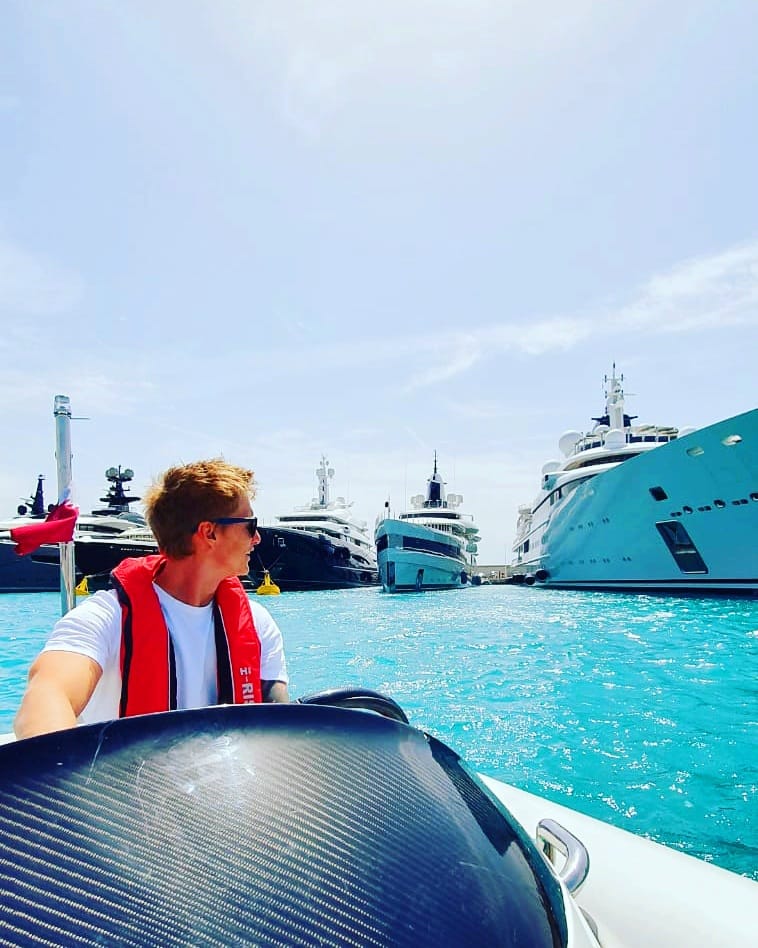
Yacht Deckhand Premium STCW

Yacht Stewardess Premium STCW
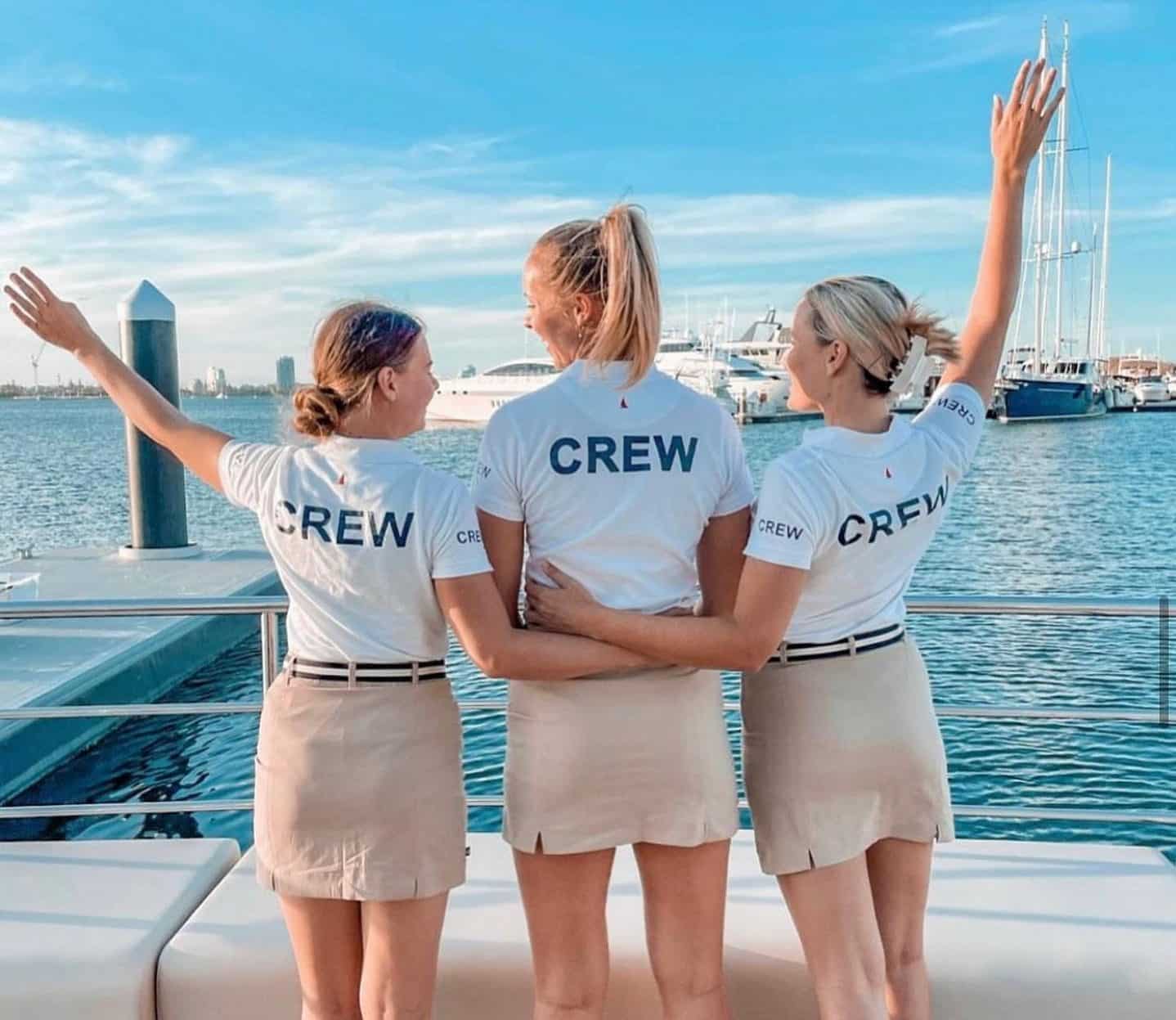
Yacht Stewardess Full STCW
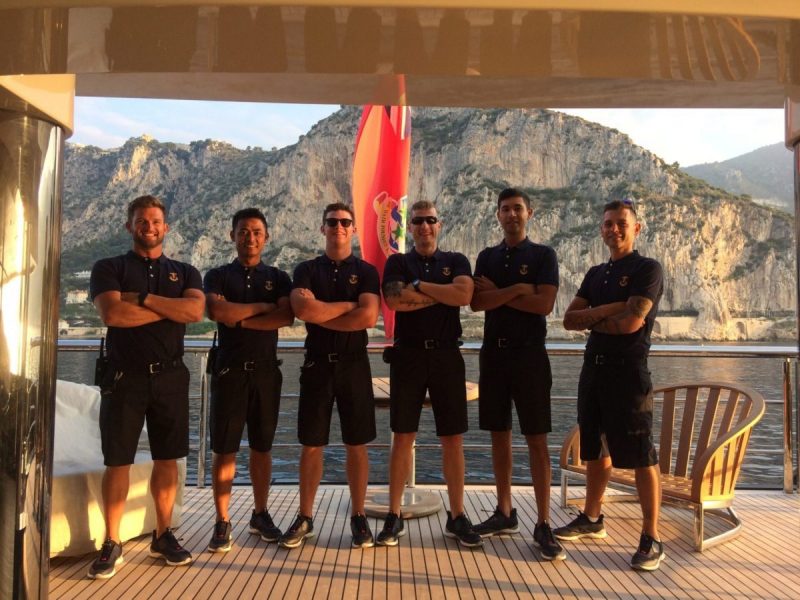
Superyacht Deckhand Full STCW
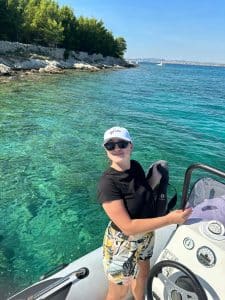
STCW Training in Holland- A Comprehensive Guide

Top 10 best places to find a Yacht job in the Med 2024?

RYA Powerboat Level 2 for yacht crew: Unlock Your Powerboating Skills
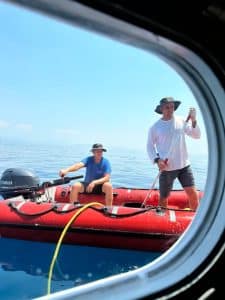
How Much Does Yacht Crew Make?

Top 10 Benefits of STCW Course Netherlands

Yacht Stewardess Training in Amsterdam

Yacht Crew Courses for Holland: Food Hygiene Level 2

Basic Safety Training for Yacht Jobs in Holland
Superyacht crew training europe.
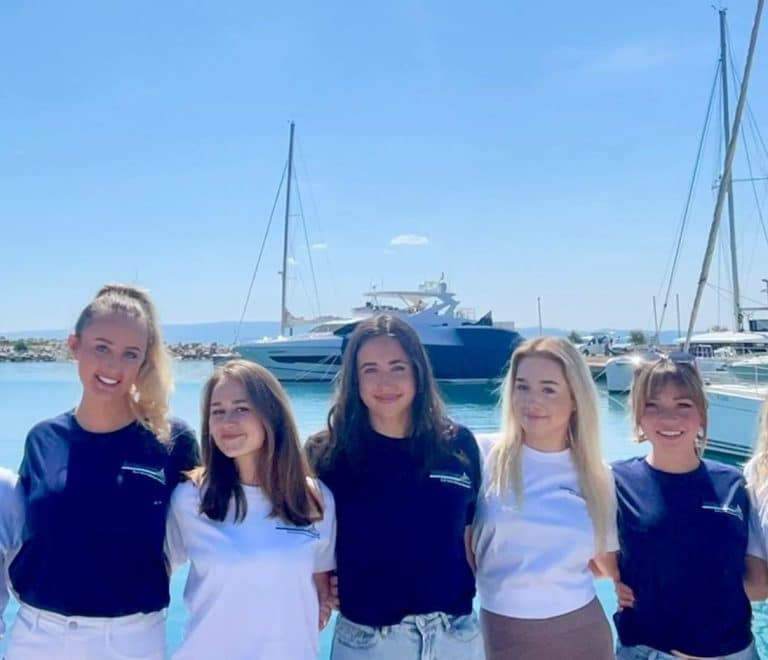
Final 1 spot left for 2024. Become the last crew with discount code: “yachtie50” at checkout. For 50€ free.
Get free yacht cv and yacht job offers

We always try to get back to our enquiries within 24 hours, however it is not always possible. Please send us another email or text message if you have not heard from us within 48 hours as we may not have received your enquiry. Please note that we do not have access to or respond to calls, emails or Whatsapp’s on weekends or public holidays.
ENQUIRE / BOOK AN APPOINTMENT
CAPE TOWN [email protected] OR [email protected] OR [email protected]
JOHANNESBURG South African Yachties, Regus, Neslon Mandela Square 2nd Floor, Nelson Mandela Square West Tower, Sandton, Johannesburg, 2196
CAPE TOWN South African Yachties Regus, Blackriver Park 1st Floor, Block B, North Park, Black River Park, 2 Fir Street, Observatory, Cape Town 7925
GET IN TOUCH
JOHANNESBURG: [email protected]
CAPE TOWN: [email protected] [email protected]
Quick Links
- Course Bookings
- Seamans books
- Yachting Info
- Crew Services
- Recruitment
- No categories

COMMENTS
Welcome to South African Yachties. Don't waste your time and money trying to figure it all out! Call South African Yachties - we'll give you all the information you need. We are here to help you with all your yachtie needs! South African Yachties can help with everything from visa assistance and seamans books, to advanced course bookings!
Sa Yachties service fee of R3420 ex VAT Capago fee - this fee is subject to change and will need to be paid directly to Capago on the day of your visa appointment by you in person. The Capago fee is +- R2000 (determined by Rand/Euro exchange rate) to be paid by card only. If I am submitting your application on your behalf, I will add the Capago fee to your initial invoice. Accommodation ...
B1 B2 Visa, Schengen Visa in South Africa & More - Speak to our expert team about applying for your visa and how to become a yachtie
Your reward for all the effort and money put in, is an amazing salary and experiences of a lifetime. SA Yachties is here to give you some sound advice and tell you all about the details of yachting - before you go book expensive courses, only to find out maybe its not for you!
Being a South African yachtie presents you with a few visa challenges that other countries don't have. The pandemic has presented new challenges for yachties as travel isn't as easy and seamless as before and our green passports don't give us access to many countries without a visa.
SA Yachties is closing on the 14th Dec - 7th January, so if you need any last minute questions answered, best to get those in ASAP! JHB: [email protected]. CT: [email protected]. Top man! What a year it's been! SA Yachties thanks you for all the continued support in 2018! Looking back on the year there were ...
Yachties4yachties. 3,414 likes · 4 talking about this. We offer FREE yachting advice. We are a team of yachties who focus on helping other yachties, boat owners, aspiring crew and their families...
Incredible courses and communities, made by yachties, for yachties. Sign back in
What do South African yachties need to know about protecting their foreign income from tax? As a yachtie, your starting point for tax relief should be Section 10 (1) (o) (i) (aa). To take advantage of this seafarers tax exemption, you have to ensure that the yacht on which they are working is a charter yacht used for the purposes of transporting passengers or goods. If you do not meet the ...
Welcome to Absolute Yachting & Maritime academy. Your gateway to Superyacht and Maritime training. Whether you're aspiring to join the world of luxury yachting or seeking essential maritime certification, we provide the skills, support, and coaching needed for success at sea. Explore our comprehensive training courses and personalized ...
One of the biggest issues which has surfaced is that many seafarers and superyacht crew (colloquially known as "yachties") are not even registered for tax in South Africa, yet they have remaining assets in South Africa to include shares, trusts, properties and policies as well as resident bank account/s. Donné Trump of Seafarers Global has ...
South African Yachties can assist in getting you a seaman's discharge book, if you have a job on a seagoing vessel that travels more than 8 miles offshore.
Looking for Crew. Thank you for choosing Global Yachties for your recruitment needs. We have three offices in South Africa under the name of 'South African Yachties' and our latest office - specializing in recruitment has just opened in Antibes, France under the name of 'Global Yachties'. We have a fantastic data base of crew (multi ...
Here is the step-by-step process, from beginning to end, of what to expect in your journey to becoming a yachtie when looking for a job.
Visa Agency South Africa - B1 B2 Visa, Seamans visas, seamansbooks, yacht training, assistance with course bookings, deck hand training & more
Go to a superyacht marina. 1. Have the right attitude. Along with gaining the correct qualifications to prove your competence, to become a Yachtie, you must have certain characteristics to thrive in this industry. Yachties have to be well presented, articulate, know how to take orders, and be able to work hard, all with a smile and enthusiasm.
What does a Yachties typical day consist of? Before I give you the requirements for landing your first gig on a mega or superyacht, why don't we take a look into the daily life of a yachtie and see if you're up for the task.
Credit to Captain David Pott and The Crew Grapevine Antibes for these insightful tips for new and seasoned crew… Everything is possible, there are a wide range of personalities owning these yachts requiring an equally wide range of crew to meet their needs. Every year crew arrive here having risked everything to get this far and have their dreams trampled by narrow minded crew agents ...
Recently SAPeople asked the experts in their fields to answer South Africans' seafarer questions about working on super yachts, to ensure you got the best answers to your queries. The South African Seafarer Experts Trilogy Luxury Training is the only internationally accredited training provider for interior crew in South Africa, but also offer help and […]
Building relationships with fellow yachties, captains, and industry professionals can open doors to new opportunities and help you advance in your career. Attend industry events, such as boat shows and yacht crew meetups, to meet like-minded individuals and expand your network.
JOHANNESBURG [email protected] OR [email protected] CAPE TOWN [email protected] OR [email protected] OR [email protected] JOHANNESBURG South African Yachties, Regus, Neslon Mandela Square 2nd Floor, Nelson Mandela Square West Tower, Sandton, Johannesburg, 2196 CAPE TOWN South African Yachties Regus, Blackriver ...
During this period, the majority of yachts will head to South Florida from the Caribbean and Bahamas for maintenance, summer preparations, and much-needed downtime for the crew before the summer season begins.The winter-to-summer transition period is an excellent time to find daywork and possibly secure a permanent position, as many yachties ...